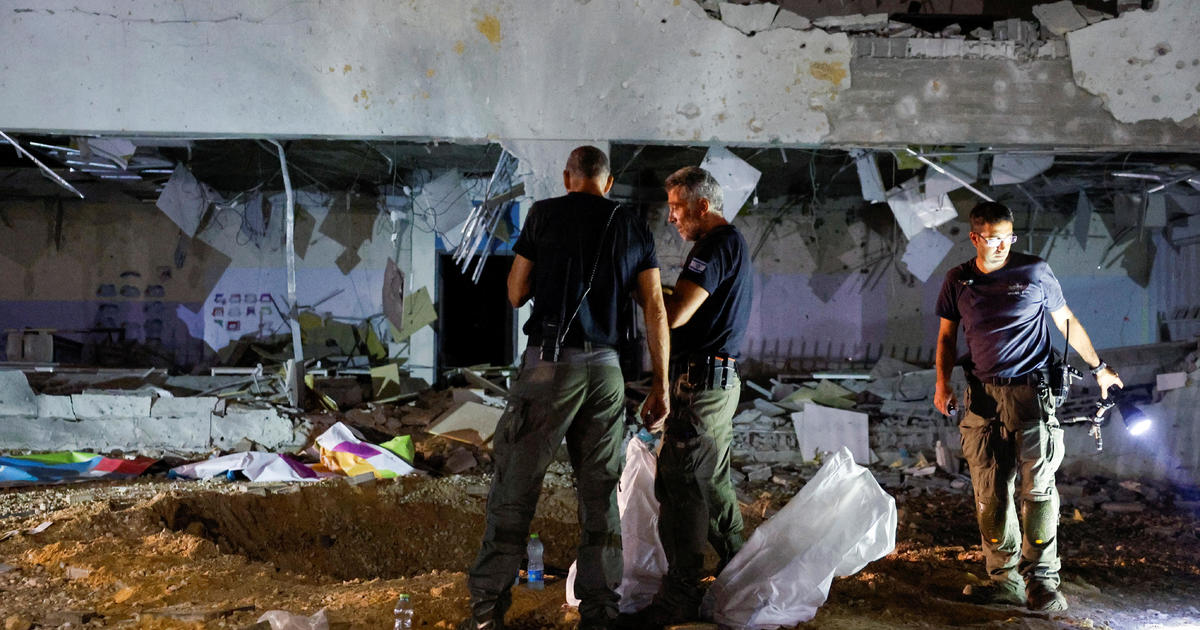Iran’s missile attack on Israel marked a significant escalation in the ongoing conflict, prompting immediate reactions and raising concerns about a wider regional war. Prime Minister Benjamin Netanyahu vowed retaliation, asserting that Iran would “pay” for the attack. The attack, which occurred on the eve of Rosh Hashanah, involved at least 180 ballistic missiles launched from Iran toward Israel, triggering nationwide shelter alerts. While Israel’s air defense systems intercepted many missiles, some landed in the south and center of the country, resulting in injuries. The attack also prompted a swift response from the United States, with the Department of Defense confirming the interception of several missiles by US forces in the region. This incident follows a series of escalating actions between Israel and Iran’s proxies, significantly altering the dynamics of the already tense regional situation and highlighting the urgent need for de-escalation.
Israel’s Response and Retaliation Vow
Israel’s response to the Iranian missile attack is a crucial element in understanding the escalating conflict. Prime Minister Netanyahu’s immediate vow of retaliation underscores Israel’s unwavering commitment to self-defense and its determination to hold Iran accountable for the attack. The statement emphasized Israel’s established policy of reciprocal action against any aggressor.
The Scope of Retaliation
The nature and scope of Israel’s retaliatory measures remain undisclosed. While official statements emphasize the country’s right to respond, the specifics of the planned action have been kept deliberately ambiguous. This strategic ambiguity serves multiple purposes: it keeps Iran guessing, preventing any prediction of Israel’s next move, while simultaneously deterring any further escalatory acts. The time and location of the retaliation are also purposefully unclear, further highlighting the element of surprise that is a cornerstone of Israeli military strategy.
International Involvement and Restraint
The international community’s role in this situation is critical. President Biden’s statement regarding the support of a proportionate Israeli response reflects the global concerns about potential escalation. While emphasizing Israel’s right to self-defense, his call for a proportionate response aims to mitigate the risk of an all-out conflict. The U.S., alongside G7 nations, will be consulting closely with Israel to ensure any response avoids triggering a wider regional war, and instead works within the boundaries of a measured response strategy that de-escalates the conflict.
Iran’s Justification and Objectives
Iran justified the missile attack as a “legal, rational, and legitimate response” to Israeli actions targeting Iranian nationals and interests. This justification, communicated through the Iranian mission to the UN, frames the attack as a necessary response to perceived aggression. However, several points challenge Iran’s justifications and suggest ulterior motives.
Escalatory Tactics and Regional Instability
The use of ballistic missiles targeting civilian areas of Israel indicates a significant shift in the strategy of Iran, raising immediate concerns. The number of missiles used—at least 180—highlights the scale and ambition of this attack. Moreover, the timing of the attack, on the eve of Rosh Hashanah, also suggests an attempt by Iran to maximize symbolic and psychological impact beyond the purely military consequences of the attack. These elements hint at motives extending beyond simply responding to specific incidents; rather, they suggest a more broadly strategic aim aimed at impacting Israel’s capacity to counter Iran’s actions, and unsettling the region.
Domestic and Regional Considerations
While Iran presents the attack as a straightforward response to aggression, internal factors may be influencing its actions. Maintaining a strong national image in the face of domestic economic struggles, as well as ongoing internal political tensions and dissent, is an essential aspect of the ruling government’s approach. Furthermore, the ongoing conflicts and unstable situation in the region allow Iran to play to both domestic and regional audiences to portray itself as a formidable defender of Iranian interests against the perceived aggression of the West and Israel.
The Risk of Wider Conflict
The current situation carries significant risks of wider conflict across the Middle East. Iran’s missile barrage and Israel’s retaliatory actions increase regional tensions and heighten the potential for the involvement of various parties with differing, and possibly irreconcilable, strategic interests.
Regional Allies and Proxy Groups
The actions of Iran and Israel have profound implications for regional actors and their proxies. Hezbollah, a major Iranian proxy group, is already engaged in conflict with Israel, further deepening the already complicated equation of military response. The actions of Israel have implications for both the existing level of tension and also have potentially long-lasting ramifications for this area of strategic and economic importance. The potential for other groups or nations to become embroiled in this conflict dramatically increases regional uncertainty and potentially destabilizes the regional balance of power.
The Role of the United States
The United States’ involvement in the region remains complex and critical. The interception of some Iranian missiles by U.S. forces highlights America’s direct role in the ongoing crisis. America has a number of existing strategic relationships and economic and security partnerships within the area, creating opportunities to influence the actions of the major actors involved. This direct involvement elevates the stakes dramatically, raising the potential for this conflict to rapidly escalate beyond regional boundaries.
Take Away Points:
- Iran’s missile attack on Israel represents a significant escalation in regional tensions.
- Israel has vowed retaliation, but the nature and scope of its response remain unclear.
- Iran justifies the attack as a response to Israeli actions, but broader strategic goals may be involved.
- The risk of a wider regional conflict is significant, involving various regional allies and potentially the United States.
- International efforts are focused on de-escalation and preventing a broader war.




